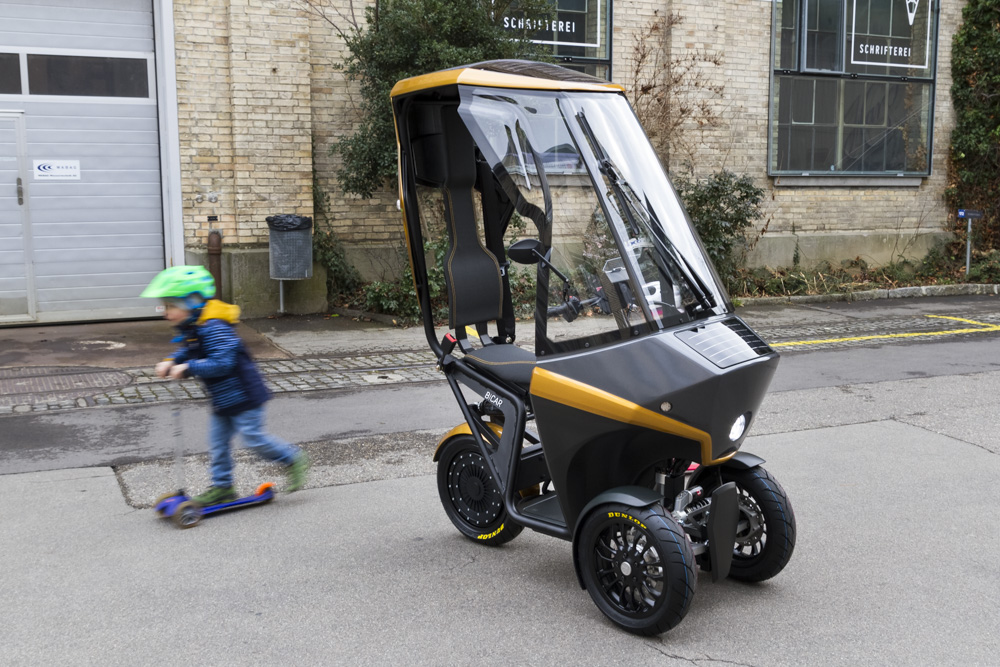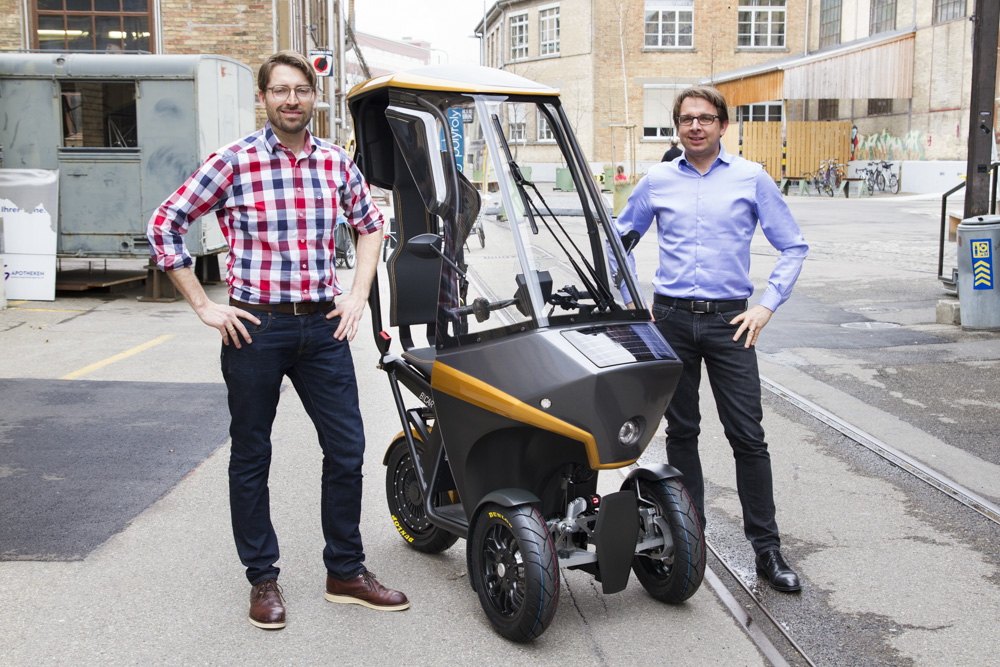Share your BICAR AG, a Swiss company specializing in sustainable vehicles, has used FFF technology from 3D printer manufacturer German RepRap to support the development of its electric, emission-free single-seater automobile.
Using a German RepRap x1000 system located at the Zurich University of Applied Sciences (ZHAW)’s School of Engineering, Share your BICAR AG has been able to clarify the technical and economic feasibility of its BICAR. The company was also given a larger degree of design freedom thanks to the advantages enabled by additive manufacturing. According to Adrian Burri, Managing Director of Share your BICAR AG:
“With traditional processes, components with complex structures and bionic shapes, as shown on the BICAR, are usually very difficult or even impossible.”

A car built for cities
Share your BICAR AG originally began life as a research project led by Burri and Hans-Jörg Dennig at ZHAW, who were looking into an innovative individual eco-friendly mobility solution. Their product idea, the BICAR, is a three-wheeled personal mobility vehicle with a focus on sustainability and pollution-free travel. It became the product of the company Share your BICAR AG as a spin-out from ZHAW in 2016.
The vehicle is powered by solar energy and a back-up system with swappable batteries. It is intended for short and medium distance traveling in urban city environments, helping people avoid traffic jams and search for parking spaces due to its compact size. The BICAR has a top speed of 45 km/h, and is safe enough to be driven without a helmet.
BICAR development
ZHAW’s School of Engineering is a development partner and consultant for a number of firms, providing a platform for businesses to progress their ideas using 3D printing. Through Swiss reseller KVT-Fastening, ZHAW’s School of Engineering purchased a German RepRap x1000 FFF 3D printer in January 2019, due to its large capacity and open platform. With a print volume of 1000 x 800 x 600 mm, the 3D printer is geared towards the production of large plastic parts, compatible with a range of materials.
Located at the Centre for Product and Process Development (ZPP) of ZHAW, the x1000 has been used by the School of Engineering to produce prototypes and functional parts. Using the 3D printer, Share your BICAR AG has reportedly benefited from shorter production times and lower costs, allowing designers to develop completely new approaches in terms of design and function.
An updated version of the BICAR was presented at the International Geneva Motor Show in March 2019, which was developed according to market needs and street approval regulations. Each BICAR will be manufactured in Switzerland, and will operating in the cities of Winterthur, Baden and Basel after September 2019.

3D printed electric vehicles
With the development of electric, technologically advanced sustainable vehicles on the rise, 3D printing has played a major role for a number of companies manufacturing those vehicles. In March 2018, 3D printer filament manufacturer Polymaker partnered with Italian car manufacturer XEV to make 3D printed low-speed electric vehicles (LSEVs). Startup Uniti Sweden is also applying 3D printing in its production plant for electric vehicles in the UK.
Another example can be seen in Olli, a 3D printed autonomous electric vehicle manufactured by Local Motors, an Arizona-based OEM. It can be customized according to desired routes, and has received a billion dollars in funding to help advance its progress. Having been in development since 2016, two Olli vehicles have undergone a 90-day trial period at the Sacramento State University campus in 2019. Earlier this month, Local Motors also announced an upgrade to the vehicle, known as Olli 2.0.
Subscribe to the 3D Printing Industry newsletter for the latest news in additive manufacturing. You can also stay connected by following us on Twitter and liking us on Facebook.
Looking for a career in additive manufacturing? Visit 3D Printing Jobs for a selection of roles in the industry.
Featured image shows the BICAR being driven. Photo via Share your BICAR AG.


